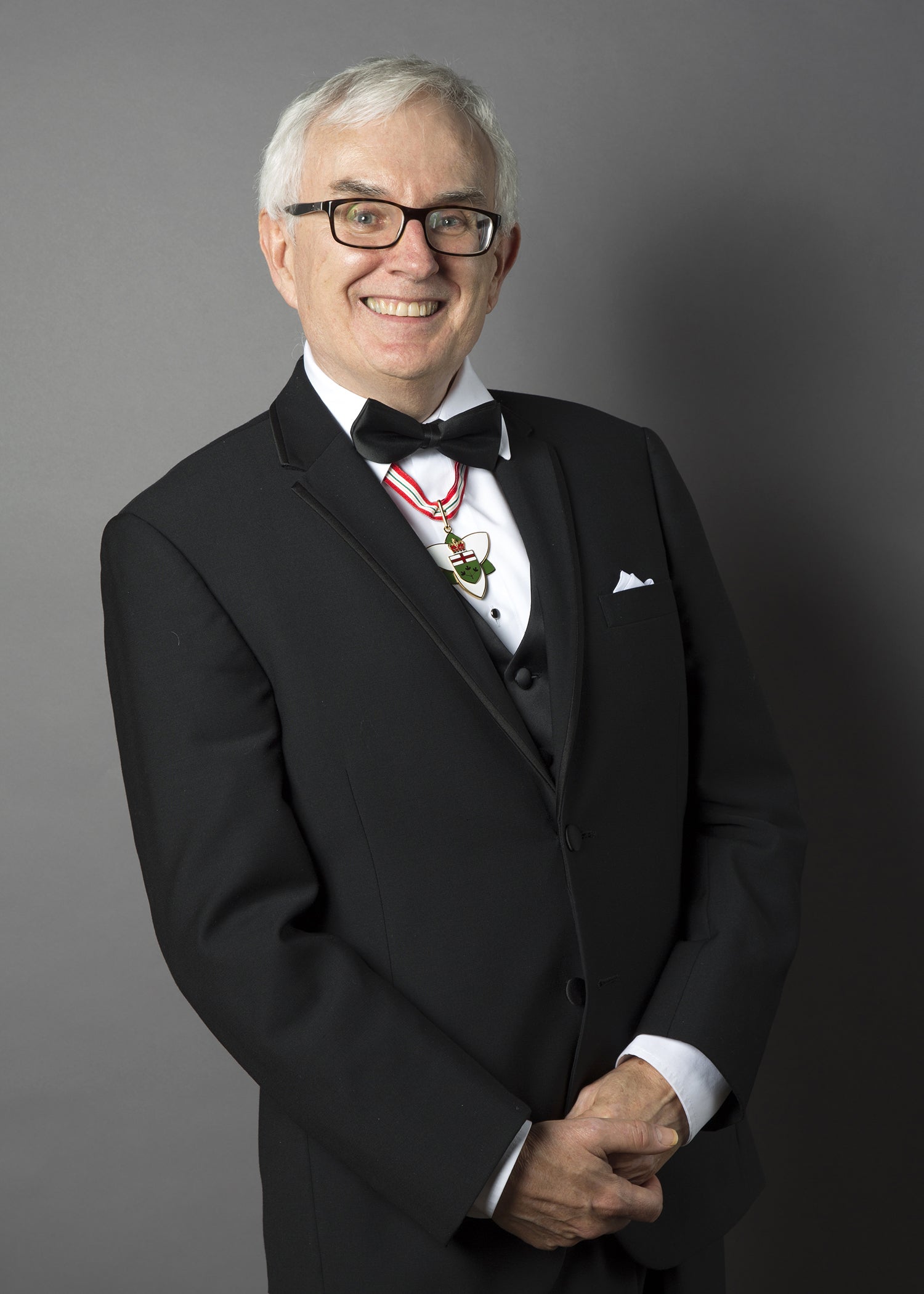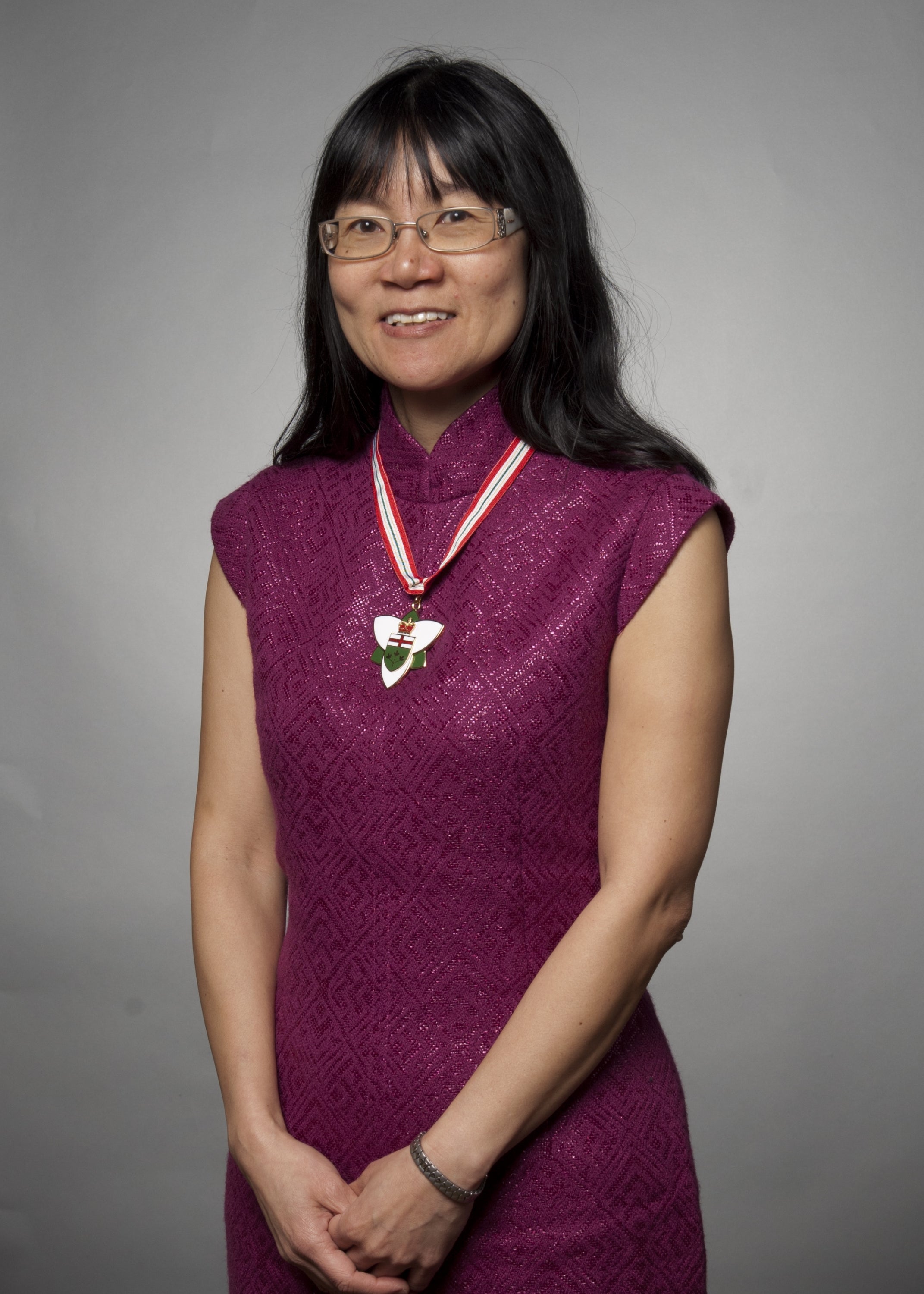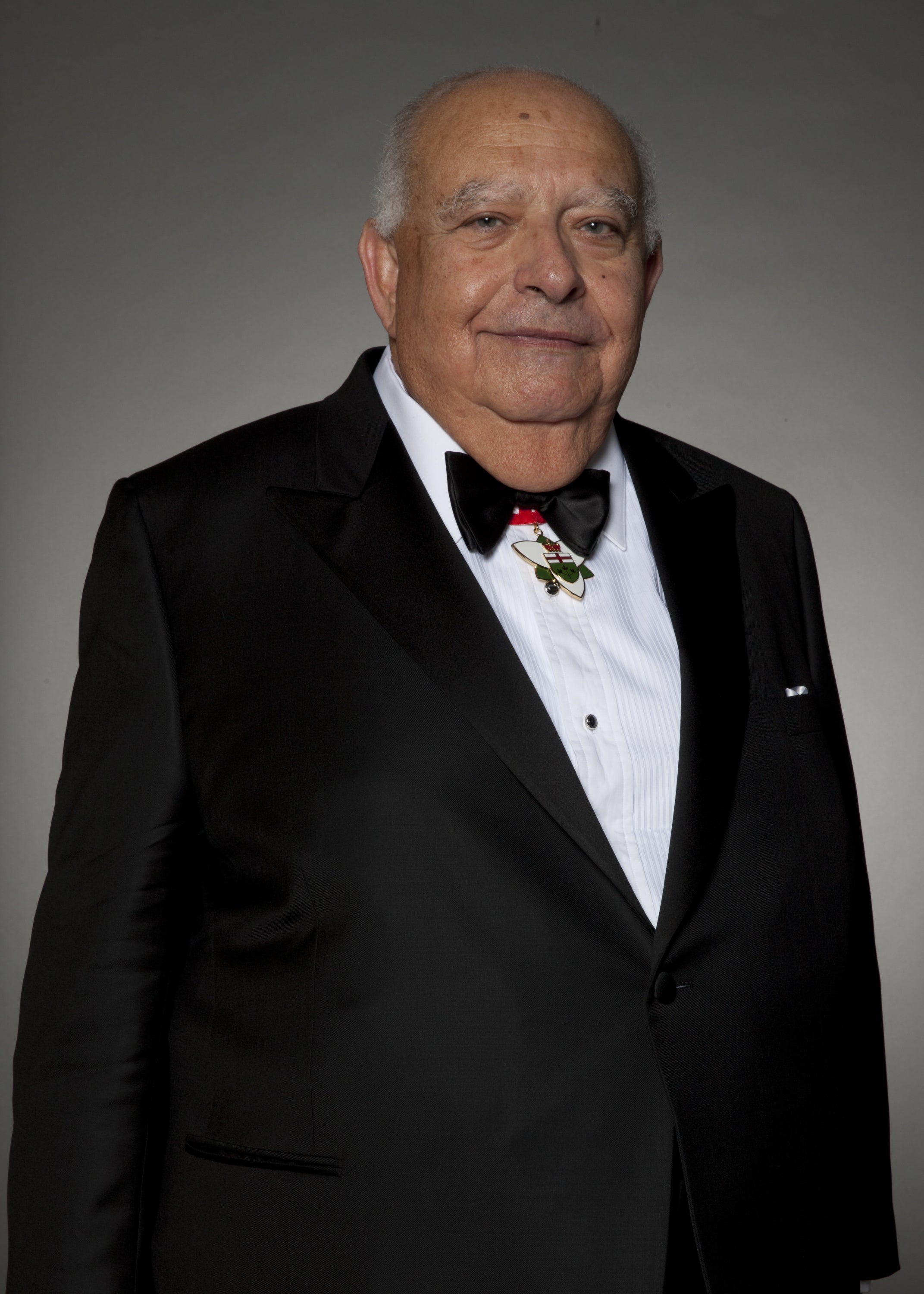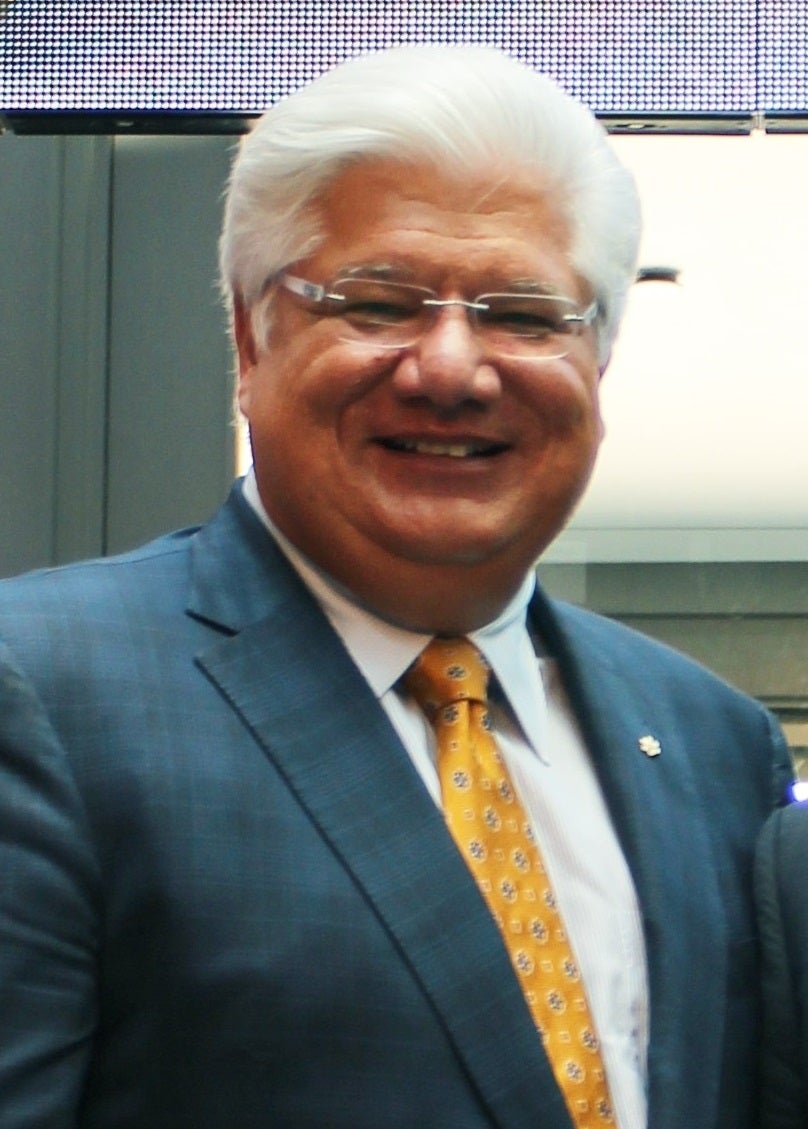Waterloo is celebrating 60 years of innovation in 2017, which is also the 150th anniversary of Canada and Ontario. An important part of that shared history is the Order of Ontario, marking its 30th anniversary as the province’s highest honour. Over three decades, it has defined a community of excellence and innovation that has helped the province grow and thrive.
Waterloo luminaries figure among members of the Order, including two graduates, one faculty member and one past chancellor
Here is a brief look at how these appointees have changed lives and are changing mindsets in Ontario, in Canada and around the world.
Rick Green
Invested into the Order of Ontario in 2015, BSc ’75

Everything I thought I knew about ADD was wrong. Getting a proper diagnosis and treatment was felt like losing 400 pounds, only from the mind rather than the body. I was more productive with far less wear and tear on my soul. The transformation was so profound, ADHD in adults became my full-time mission
Green is a world-renowned champion for mental health, specifically Attention Deficit Hyperactivity Disorder (ADHD) and Attention Deficit Disorder (ADD)—a type of ADHD. He’s also an award-winning comedian, satirist, and writer. As an activist/educator, Green uses humour and humanity to break down the myths and stigma about these common childhood disorders and help others understand they can live full successful lives with ADHD/ADD.
He co-wrote ADD Stole My Car Keys with Dr. Umesh Jain of the Centre for Addiction and Mental Health (CAMH) and created a video series on ADHD medication. He and his wife Ava also launched an online community TotallyADD.com, featuring scores of top experts. It is one of the world's leading resources for people living and working with ADHD.
In 2007, Waterloo ranked Green among its top 50 alumni. He also received the CAMH Foundation Transforming Lives Award for 2009.
Avvy Yao Yao Go
Invested into the Order of Ontario in 2013, BA ‘86

“Citizenship defines who we are as a people and as a nation. For Chinese Canadians and many others historically excluded from Canadian citizenship, citizenship is as much about equal respect as it is about a sense of belonging.”
A self-described ‘loudmouth social activist’ lawyer, Go fights for the rights of marginalized immigrants and refugees in Toronto. She has influenced a number of important legal and policy reforms, such as the Employment Equity Act, and played a significant role in Canada’s redress for the Chinese Head Tax and Exclusion Act, which resulted in a parliamentary apology in 2006.
Go is director of the Metro Toronto Chinese and Southeast Asian Legal Clinic, a non-profit community-based organization that helps low-income people in the community deal with systemic problems in the legal system. She has built coalitions across different communities on issues of anti-racism, human rights and equity. In 2007, she organized and launched the Federation of Asian Canadian Lawyers and co-founded the Colour of Poverty campaign, raising awareness about rising poverty within radicalized communities in Ontario.
While Go says she is “award-averse,” she accepted the Women’s Law Association of Ontario President’s Award in 2002, in part to help pave the way for recognizing the work of other Asian women and women of colour. She also received the City of Toronto’s William P. Hubbard Human Rights Award in 2008.
Adel S. Sedra
Invested into the Order of Ontario in 2013, Distinguished Professor Emeritus, Department of Electrical and Computer Engineering, University of Waterloo

Sedra earned his BSc from Cairo University in 1964 and came to Canada in 1966 to do his MASc and PhD in electrical engineering at the University of Toronto. He then spent the next 37 years there, progressing from teaching assistant to associate professor, then from professor to Chair of the Engineering Department and finally university provost. In 2003, Waterloo’s then-president David Johnston persuaded him to come to Waterloo for a new challenge. Sedra served as a professor of electrical and computer engineering and Dean of Engineering from 2003 to 2012. He maintains an office on campus while consulting to industry and universities around the world.
“Higher education is the great social equalizer . . . lifting people up and giving them hope. Setting teaching and research as conflicting tasks misses the point of what a university is all about . . . Teaching and research grow connection and the benefits garnered by exercising their interplay to me characterize the successful professor. The best among us (has) these two aspects reinforce one another.”
Students are Sedra’s key achievement as an award-winning educator, dedicated to advancing learning in three dimensions: research, teaching and university governance. He co-wrote the market-leading textbook on microelectronics, now in its seventh edition, and is currently writing a book on university governance.
A world authority in microelectronics, Sedra focused on the theory and design of circuits for communication and instrumentation systems. His work resulted in major developments in fields ranging from medical technology to wireless communications.
He received education awards from the American Society for Engineering Education and the international Institute of Electrical and Electronics Engineers (IEEE), the world’s largest professional association. He also received the 2000 IEEE Third Millennium Medal, the 2002 Engineering Medal for Excellence from Professional Engineers Ontario, and the 2010 Outstanding Service Award to the Canadian Microelectronics Industry from the Information Technology Association of Canada.
Mihal "Mike" Lazaridis
Invested into the Order of Ontario in 2005, University of Waterloo Chancellor (2003-2009)

Lazaridis has an innovation agenda. Dubbed the ‘father of the smartphone,’ he is passionate about the power of basic science to improve and transform the world. He helped Waterloo Region make the quantum leap to a global high-tech hub and innovation hot spot and is working to build a Quantum Valley here.
A visionary innovator and virtuoso engineer, Lazaridis co-founded BlackBerry — formerly Research in Motion (RIM)—in 1984. Its breakthrough wireless mobile technology gave computing legs and its award-winning digital barcode reader rocketed film editing to warp speed. He’s set on spurring Canadian investment in scientific research and education to ready us to catch the next big tech cycle. He provided critical funding to create the Mike & Ophelia Lazaridis Quantum-Nano Centre (2012) and the Institute for Quantum Computing (2002) at University of Waterloo, plus the Perimeter Institute for Theoretical Physics (1999), advancing foundational issues in theoretical physics through scientific research, training and educational outreach.
Lazaridis was made an Officer of the Order of Canada. Other honours include an Academy Award and Emmy Award for technical achievements in film editing in 1999, and being named Canada's Nation Builder of the Year by Globe and Mail readers in 2002.